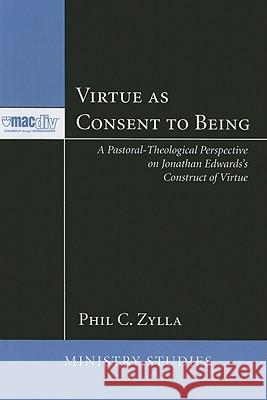Virtue as Consent to Being » książka
Virtue as Consent to Being
ISBN-13: 9781608995042 / Angielski / Miękka / 2010 / 158 str.
Virtue as Consent to Being
ISBN-13: 9781608995042 / Angielski / Miękka / 2010 / 158 str.
(netto: 102,20 VAT: 5%)
Najniższa cena z 30 dni: 106,13
ok. 16-18 dni roboczych.
Darmowa dostawa!
Virtue theory has become an important development in Christian ethics. Efforts are made in this volume to bring pastoral theology into conversation with these developments. This book probes the philosophical theology of Jonathan Edwards, who proposed that virtue is a form of beauty defined as ""consent to being."" This leads to the notion of compassion as ontological consent. Since language is the vehicle by which our experiences are conveyed, the book probes the issue of how moral vision is expressed in ""experience-near"" language through parable, poem, and lament. Moral vision is articulated most adequately through such language, and finding it is a kind of quest. The last chapter is a proposal for a mature pastoral theology of virtue as an expansion of Edwards's concept of ""consent to being"" from the vantage point of pastoral theology. A dynamic vision of virtue requires some connection between the experience of suffering and the inward striving toward the greatest good. The essence of virtue can be best understood, from a pastoral theological perspective, as the relational dynamic of ""suffering with"" another human being. ""Who but a scholar, pastor, and poet could turn a cacophonous chord like virtue, suffering, and pastoral theology into sweet, soul-caressing music that resonates in our hearts and sings to the scholar, pastor, and poet in each of us? Phil Zylla is . . . and does. Zylla's incisive exploration of virtue draws out the scholar in us. His deft blending of virtue and suffering--as requisites of compassion-infused ministry--engages our pastoral nature. And the elegant encapsulation of pastoral care as pati cum, to suffer with, awakens us to poetic tenderness. This book expands the mind, deepens the heart, and ignites the imagination."" --Charles J. Conniry Jr. Vice President and Dean George Fox Evangelical Seminary/George Fox University ""This is a significant, serious, and in many ways beautiful work on pastoral virtue and vocation. Here the author deftly reclaims Jonathan Edwards's heuristic vision of virtue as 'consent to being'--a voluntary alignment of one's heart with the divine and beautiful ordering of the world. Extending the trajectory of Edwards's moral vision, Phil Zylla adds his own important insight--that virtue so conceived necessarily also involves an agreement to 'suffer with' those whose experience reflects the present brokenness of God's world. Such costly consent to compassionate solidarity is the quintessential feature of Christ-like virtue and the pastoral vocation. In an era when honed social skills and leadership techniques are treated as the key guarantors of pastoral success, this book points us back to what matters most in ministry. It rings true "" --Glen G. Scorgie Professor of Theology Bethel University ""Phil Zylla beautifully captures the transformative power of Jonathan Edwards' moral vision by showing how it may deepen and strengthen our understanding of pastoral ministry. He shows how Edwards' own pastoral ministry would have been more reflective of his own moral sensibilities and intentions had it been informed by this moral vision and the pastoral images that it implies. This book is more than a retrieval of Edwards' moral vision for our own troubled world and more than an exercise in pastoral theology. It is itself a clarifying vision of what pastoral ministry can be in a world that cries out for compassion, of a ministry expressive of the reformative qualities and intentions of the attentive poet, the weeping prophet, and the good shepherd."" --Donald Capps Professor of Pastoral Psychology, Emeritus Princeton Theological Seminary Phil Zylla is Academic Dean and Associate Professor of Pastoral Theology at McMaster Divinity College in Hamilton, Ontario, Canada.











